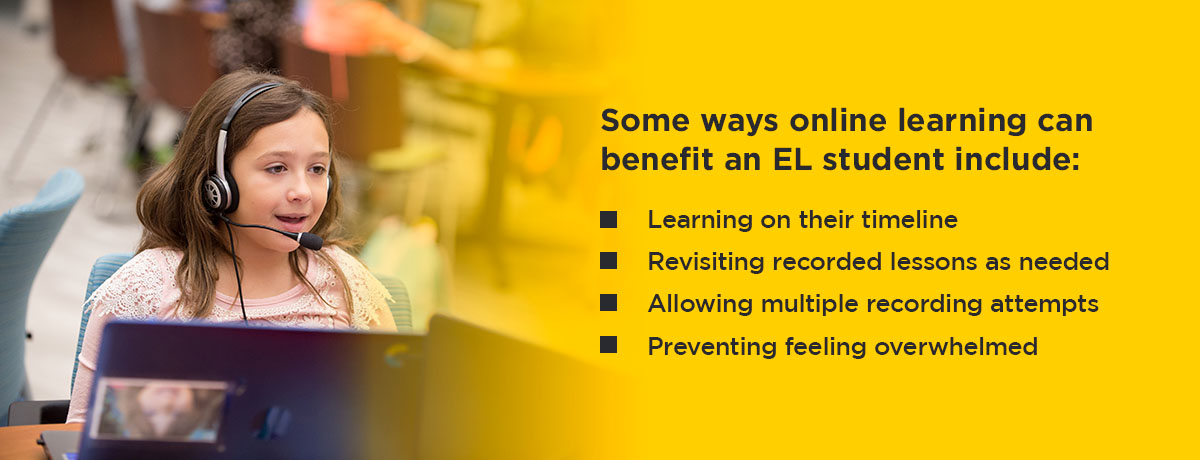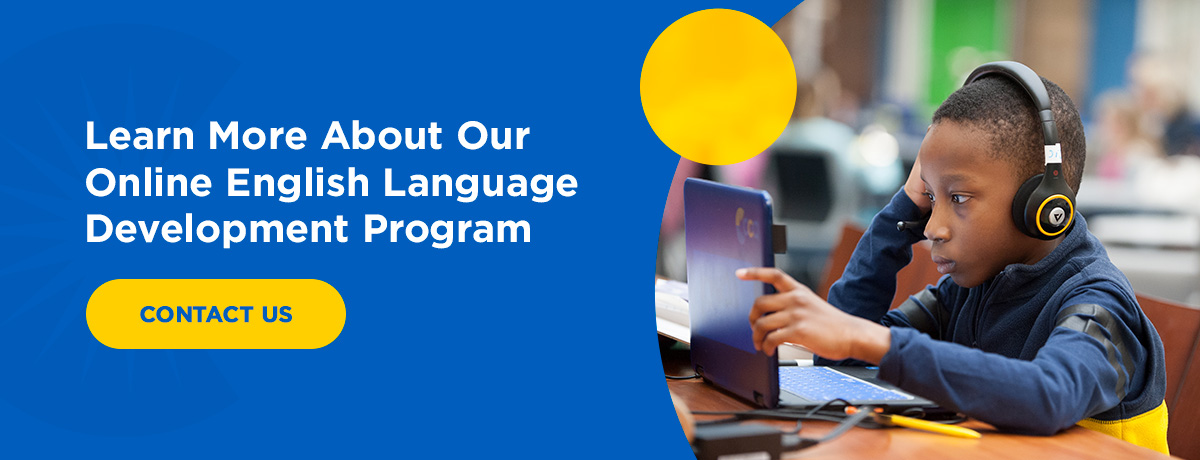English as a second language (ESL) and English language learner (ELL) are standard terms schools use to describe students learning English. Some schools, like those in Pennsylvania, might also simplify ELL to English learner (EL). Understanding the difference can help parents and families better navigate programs and school pages to locate more relevant information regarding your student.
ELL vs. ESL
ESL and ELL are very similar terms that often appear in academic materials and school sites. ESL used to be the industry-leading vocabulary to describe students who speak languages other than English as their native tongue, but many states and schools moved away from it because many students know more than two languages before English. ELL, or EL, provides a more encompassing term that includes tri- and multi-lingual students.
Despite the difference in inclusion, EL and ESL encompass students of all proficiency levels, starting with students with little to no English knowledge and those with more developed language skills.

How Can Distance Learning Help ELL Students?
Learning another language at any proficiency level requires unique tactics and strategies. Online and distance learning offers a comfortable environment where EL students can thrive. Some ways online learning can benefit an EL student include:
- Learning on their timeline: With recorded lectures and flexible schedules, EL students have more freedom to learn at times that work best for them. If they need extra time to process materials, they can pause recordings so they can think. Students who feel overwhelmed can incorporate breaks, allowing them to maintain an ideal learning mindset. This option also enables students to respect cultural traditions and lifestyles, so they can spend more time with family or attend community events.
- Revisiting recorded lessons as needed: In addition to stopping lessons when they need breaks, students can also revisit recordings as many times as they need. Reviewing lessons multiple times helps ensure students understand materials and identify where they might need extra help or clarifications. This aspect is also helpful when students are learning to use new vocabulary or English concepts.
- Allowing multiple recording attempts: Lessons are often only one aspect of online learning. Many teachers use video and voice recordings to collect responses, engage students from home, and simulate class presentations or discussions. Because EL students might be less comfortable with their speaking skills, they can listen to and retake recordings as often as needed before submitting. This system reduces the stress that many experience from in-person interactions while allowing them to improve their speaking skills.
- Preventing feeling overwhelmed: Students without the right resources and accommodations can easily become overwhelmed and stressed, causing them to lose motivation in their progress and studies. Students who feel supported and prepared to study English are often more willing to participate in lessons and embrace learning.
When online learning provides comprehensive support to EL students, this option can better equip them with the language skills and overall knowledge they need for their futures.
What Commonwealth Charter Academy Provides for ELL Students
CCA is a public online school for students across Pennsylvania. At CCA, we celebrate all cultural backgrounds and invite students to share their traditions and experiences. However, we understand that EL students often need accommodations to support their learning experience. Some of the ways CCA helps EL students include:
- Offering visual aids to students: Multi-media materials can help students comprehend and retain concepts. While verbal and oral lessons and activities can encourage proficiency growth, they can also leave students confused. Visual components, like graphs, images, and videos, can help students connect unfamiliar concepts and words to things they already know.
- Simplifying instructions: CCA’s specialized EL teachers understand that these students have unique needs. They might need personalized instructions tailored to their proficiency levels. Instructions for EL students should lack idioms, slang, and unknown vocabulary to help students develop their language skills and boost comprehension.
- Providing more time on assignments and tests: EL students might take more time on assessments to interpret instructions, answer choices, and responses. More allotted time for test taking can take away stress and encourage them to think through test elements and ask questions. EL students can benefit from extended due dates on assignments, accommodating time to review materials and redo work.
- Connecting families with translators and interpreters: Instructors who teach English programs also need to work closely with parents and family members to discuss progress. Online school is a transition for all parties involved, including parents. CCA offers translation and interpretation services as needed to families, allowing them to connect with teachers, staff, and administrators and develop plans to assist their student’s learning and proficiency progression.
- Allowing students to connect with others: CCA understands the value of socialization and connecting with other students. We offer optional socialization opportunities that enable kids to engage with others across the state. EL students can make friends from their grades and classes and have fun while practicing their English speaking and listening skills.
CCA’s resources and flexibility enable more personalized learning, which benefits EL students and families. When teachers and administrators can tailor your learning experience to your family’s needs, your student can focus on their studies and learning English. Various Family Service Centers across the state can connect families with school counselors and administrators ready to work with you.
Our Online English Lessons
CCA uses Pennsylvania state standards and guidelines to structure and format EL programs. We put EL students into small groups based on their English proficiency level and age so learning follows their pace. EL specialists lead these lessons and ensure they have the tools and resources as they progress in their English skills.
They are still a part of larger classes with other students, where the specialists work with other teachers to review progress and share information or resources. Their English Learners lessons are separate to accommodate their individualized needs and progression paths.
Our goal is to provide all students with a well-rounded and comprehensive education that prepares them for their futures outside school. Programs designed for EL students and led by specialists can provide them with the knowledge and skills they need to succeed.
Learn More About Our Online English Language Development Program
English is a challenging language, and many students struggle if it isn’t their native or first language. The right learning environment can help them develop the speaking, listening, reading, and writing skills they need to do well in and out of school.
CCA benefits all types of students, including EL kids. Regardless of their proficiency level, CCA can pair them with specialists and resources to help them learn the language and prepare them with vital communication skills. Opportunities for personalized educational approaches and socialization opportunities benefit students from all backgrounds, allowing them to work how they learn best and engage with their peers in a fun, educational setting.
If you have any questions on how CCA can support your English learner, contact us today. You can also download our guide for comprehensive information outlining how CCA approaches EL programming.




